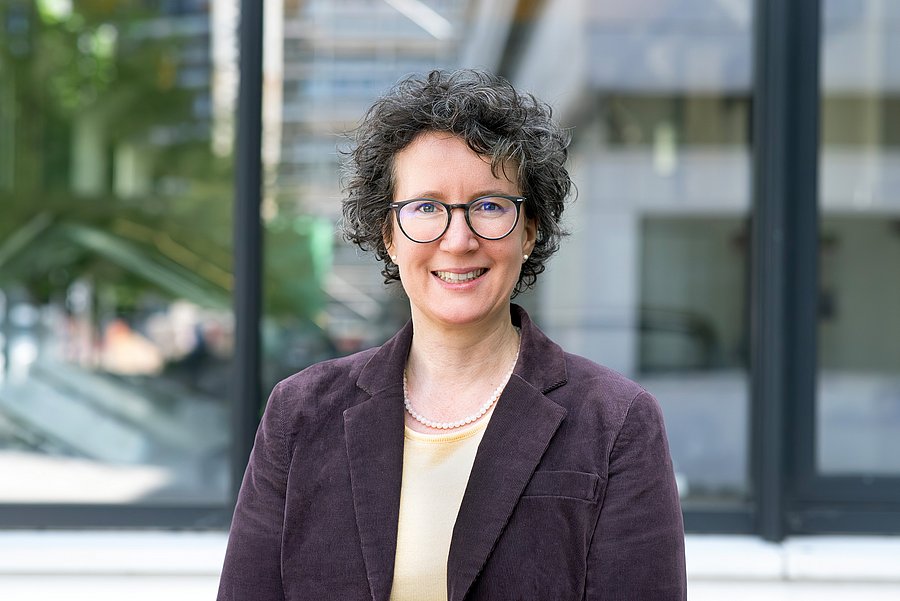Personnel
For more participation: Theologian researches inclusion, justice and social change

Theologian Prof Dr Katharina Peetz // Photo Friederike von Heyden
She mainly investigates the relationship between theologies and disability. "Together with affected people, I want to explore what disability feels like, how disabled people are 'disabled' and how society can be changed towards greater participation," explains Katharina Peetz.
With this in mind, she is currently developing a research project in which those affected can actively participate. It deals with the topic of inclusion in Wuppertal and examines how disability arises through various social practices and meanings. The aim is to understand which structures and ways of thinking lead to people with disabilities being excluded and how these can be changed to enable greater participation and self-determination. "The project also asks what role religion plays in these processes - in other words, whether it tends to contribute to marginalisation or to support inclusion," says Peetz.
The 41-year-old is also focussing on the peace and reconciliation process in Rwanda. In her research, Katharina Peetz investigates how survivors and perpetrators of the genocide there process their experiences of violence suffered and perpetrated and what role religious resources play. She also deals with the dialogue between theology and the natural sciences. The professor takes the discourse surrounding the work of evolutionary biologist and critic of religion Richard Dawkins as a starting point for an in-depth examination of the relationship between theology and the natural sciences.
About the person
Katharina Peetz studied pre- and early history, biblical and systematic theology as well as Catholic religion and history for secondary school teaching at Saarland University. She gained her doctorate at the Eberhard Karls University of Tübingen and habilitated at the Swiss University of Freiburg. After working at the Theological-Philosophical University of Sankt Georgen and the University of Koblenz-Landau, she came to the University of Wuppertal in October 2024, where she initially held the Chair of Systematic Theology.
